The never-ending debate on Zimbabwe sanctions
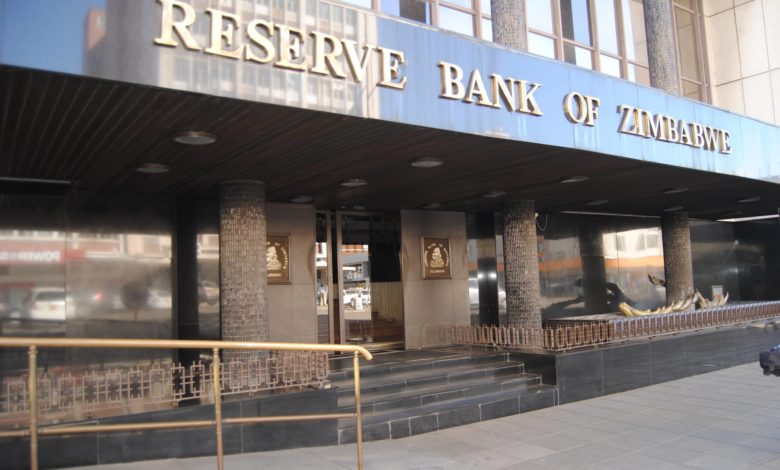
Are there international sanctions on Zimbabwe?
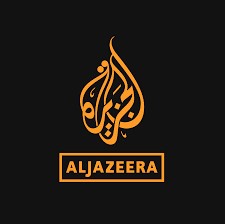
So is Zimbabwe subject to international sanctions or not? The short answer to this question is, “no”, the long answer is, “yes” but perhaps the more correct answer is, “yes and no”. When news hit Zimbabwean streets that Qatar’s international news service, Al Jazeera, would be airing a four part documentary exposing corruption and underhanded gold dealings in Southern Africa including Zimbabwe, the attention of just about everyone in the country was fixated on this planned exposé. It seemed that government officials were falling over each other to do some sort of damage control even before much of the envisaged damage had been done. The investigative scoop was reportedly conducted over a two year period with the central charactors having been secretly filmed as they spoke with people whom they thought were potential clients when in fact they were undercover journalists working on a story.
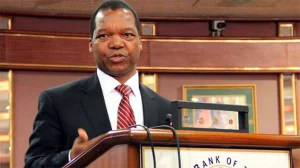
Dr John P. Mangudya
The public conversation took an unexpected turn when the Governor of the Central Bank, Dr. John P. Mangudya, issued a statement rebuffing the allegations that were supposedly going to be made in the film which had already been partly seen as teasers advertising the four part series. Part of Dr. Mangudya’s statement said of the Reserve Bank of Zimbabwe and others, “The Bank is not a sanctioned entity, and the cited individuals are not sanctioned persons either. There are no sanctions on Zimbabwean exports and imports, including trade in gold, to warrant Zimbabwe to “circumvent international sanctions” through illicit trade in gold.” Given the gaping political divide in the country with regards to sanctions, this unhelpful choice of phrasing has given fodder to sanctions deniers who have taken the statement to mean that there are no sanctions on Zimbabwe at all and now the new scramble is to clarify exactly what the Governor meant. Indeed, the Governor has come out in person to try and explain his wording, but the cat is already among the pigeons and it will be most difficult for him to walk-back on the statement either in whole or in part.

But was the Governor wrong in saying anything at all?
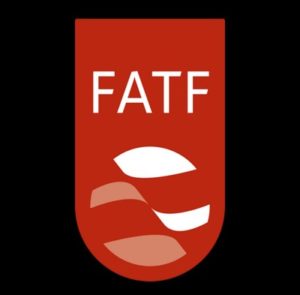
Well, the Governor had to respond given the seriousness of the allegations that were being levelled and which could have had, and may indeed still have detrimental effects on the country’s risk ratings with international financial institutions as well as regulatory authorities around the world. Simply put, the financial system over which he superintends was under attack, he couldn’t just sit back and watch such a hostile action. The Financial Action Task Force, FATF, an inter-governmental agency mandated to combat money laundering among other tasks, had only recently delisted Zimbabwe from a grey list of countries considered to have inadequate anti-money laundering controls. To let such allegations go unchallenged would most certainly lead to flagging and relisting of the country as a risky jurisdiction. International banks and regulatory bodies maintain search engines that continuously scrub reputable news sources for dozens of key words (and variations of key words) like money laundering, fraud, corruption, arrest, conviction, and others as they relate to their clients or partner financial institutions. Remember that away from home, the Reserve Bank of Zimbabwe (RBZ) is just another institutional banking client maintaining a Nostro Account. If the preferred search engines of those foreign bankers find linkages to allegations as serious as money laundering, those banks can decide to negatively list the accounts for the RBZ and consequently the banks it regulates. Such listing increases the risk of correspondent banks refusing to handle Zimbabwe transactions which, as it is, are already shunned as a result of the contagion effect of existing US sanctions. This reduces the country’s overall ease of doing business perception and makes it more unattractive to many but not all clusters of investors. In that regard, the Chief Banker took the right action in electing to respond.
But was the Governor wrong in saying what he said?
Was it correct to say that there are no international sanctions on Zimbabwe? To understand this, one needs to pay attention to the words the Governor included in the phrases that he highlighted in quotation marks – “international sanctions”. Dr. Mangudya is here refuting that there are any international sanctions on the country, its political leaders or government entities including the Central Bank itself. This is because of a number of things, first of which is that only the United Nations Security Council under Chapter VII of the United Nations Charter Articles 41 and 2.2 can legally impose enforceable international sanctions on anyone or any entity. The sanctions currently in force against the targeted individuals and entities in Zimbabwe are unilateral coercive measures imposed by the United States and its allies which the government refuses to recognise and has repeatedly called illegal. Furthermore, even the unilateral sanctions do not restrict trade transactions as long as they are not carried out by or on behalf of sanctioned parties or in some cases, their close associates. From that standpoint, it is correct to say that there are no international sanctions on the types of trade transactions mentioned in the statement.
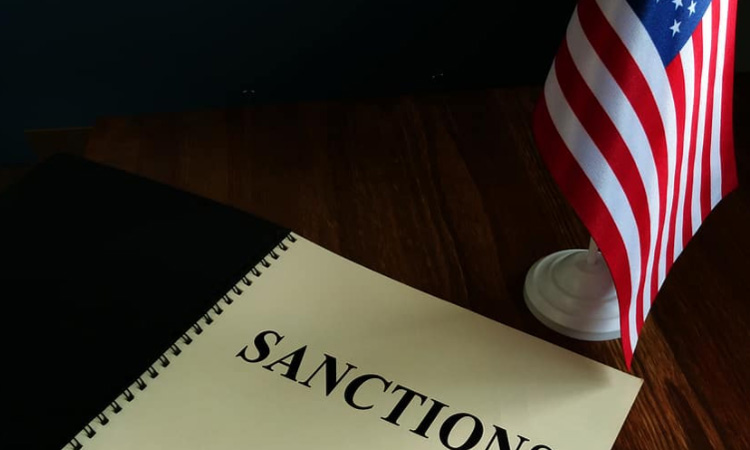
However, aside from the technical correctness of the wording, it would be folly to ignore the impact of the existing regime of sanctions notwithstanding that they are ostensibly targeted. One has to objectively look at the connectedness of everything and also at the history of how the US responds to violations of its sanctions measures whether this is done deliberately or not. In Zimbabwe, we have the examples of Standard Chartered Bank and Barclays Bank before it left, who were subject to US fines for various US sanctions violations, regardless that the prohibited transactions were unintentionally facilitated and were later self-reported to the US authorities as is required by the US Office for Foreign Assets Control (OFAC). Through OFAC, the US enjoys this long arm jurisdiction over international trade transactions because a large number of cross-border payments are made in US dollars and settle through New York. This compels banks wishing to retain their US dollar clearing capabilities to comply with US sanctions orders whether the banks are regulated in the United States or not. And because countries allied to the US, such as Australia, Canada, the United Kingdom and European Union Member countries, fully enforce the sanctions and in some cases, maintain their own sanctions on selected Zimbabwean interests, one can consider these regimes of coercive measures to be multinational or loosely “international”, despite them not having been expressly endorsed by the United Nations. Over-compliance by banks working to avoid unintended US sanctions breaches and associated fines pose additional problems for Zimbabwean entities looking to conduct business across borders. This is another way in which sanctions militate against the economy even as the sanctions themselves remain targeted at a small number of individuals and entities.
Can we conclude therefore that there are no sanctions on Zimbabwe?
Technically, there are no international sanctions on Zimbabwe as far as the legal understanding of international sanctions go, but the spillover effects of targeted sanctions on Zimbabwean persons and entities, contaminate the business environment and increase country risk. This is nearly as bad for business as having wide US sanctions as are the cases in North Korea or Iran for example because it dissuades some investors that could otherwise have a positive impact on the economy including FDI inflows, job creation and infrastructural development. However, because the general population continues to enjoy apparent connectedness to the international financial system, it is difficult to convince the average person that existing sanctions have an impact on them even if it is indirect. Truthfully though, the structure of international financial connectivity is mostly allowing the streaming out of foreign currency and exports in exchange for unproductive luxuries, trinkets and meagre export earnings through poor bargaining power. Without a doubt, US sanctions are ruinous to the overall risk perception of the country and efforts to circumvent them, create opportunities for corruption which is as detrimental to the country as sanctions. We have no shortage of reports of corruption to amply demonstrate this. To promote transparency and better accountability, the country is better off without sanctions but its not clear whether their removal is really what everyone in the echelons of power collectively want because they are also a sellable excuse for some of the more obvious governance failures.
What could have been done better?
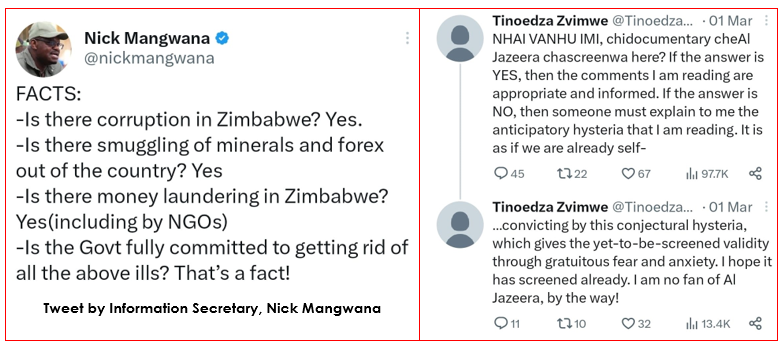
Coordination! It is understood that the RBZ needed to urgently contain the risk of having Zimbabwe’s financial system regressing in its FATF risk ratings and also manage the real threat of foreign bankers choosing to exit correspondent banking relationships with financial institutions operating in Zimbabwe. For this same reason, a more coordinated approach to the response would have helped the governance system both from the regulatory perspective as well as from the political point of view. What we had, was the Information Secretary making his various statements on Twitter, another Twitter account widely thought to be that of a senior government insider unofficially making its own statements and the the Central Bank also issuing its own. It was not a tidy approach and the lesson here hopefully is that any future situations are managed from agreed positions, with considered talking points prepared for media questions which should be clearly anticipated. People with technical knowledge of international financial systems, ideally from the Central Bank, should have led the drafting of such a coordinated response to manage the international partners but also taking into account, the domestic political mood. What is more, after all the flurry, the screening of the documentary was then postponed. Perhaps this will provide an opportunity for a better response from the authorities whenever it eventually airs.
Do you agree with this opinion? We would love to hear your thoughts in the comment section. As always, we encourage respectful posts even where we do not agree with others.


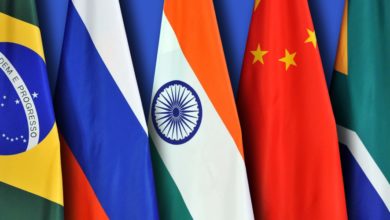
One Comment